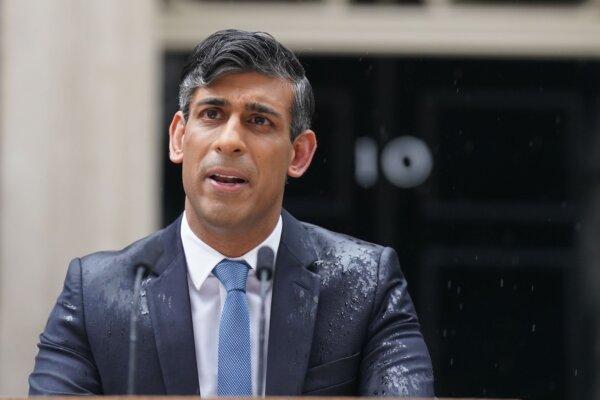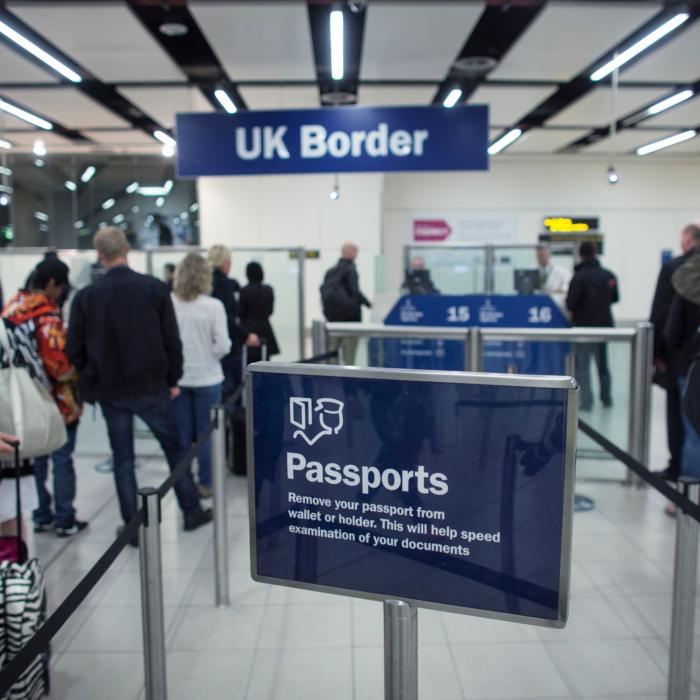A total of 68,564 people were granted asylum or other leave in the year to March 2024, the highest figure since records began in 1984, statistics reveal.
Home Office figures published on Thursday showed that vast majority of those (62,941) were granted refugee permission and 4,120 were given humanitarian protection. The rest were granted other forms of leave, such as temporary refugee permission or discretionary leave.
The department said that the record-breaking figure is owing to a combination of a high grant rate and high volumes of decisions being made.
A further 95,685 were offered to come to the UK on legal humanitarian routes, including refugees resettled in the UK and family reunification. The ONS noted that majority relate to those on specific visa routes, such as for Ukrainians and British National Overseas (BNO) passport holders coming from Hong Kong.
80 Percent Drop in Albanian Applicants
In the report, the Home Office emphasised that there had been an 80 percent drop in applications from Albanian nationals.Referencing previous statistics, the Home Office showed that in the year ending March 2023, there were 14,347 applications which the department said were “linked to the high volumes of Albanian small boat arrivals in the summer of 2022.”
“The number of Albanian small boat arrivals has fallen substantially in the latest year, and asylum applications from Albanians have therefore decreased as well (to 2,836) meaning that this nationality has now dropped out of the top ten most common nationalities for asylum applications,” the Home Office said.
Net Immigration Falls 10 Percent From Record High
The asylum figures were published the same day as the Office for National Statistics (ONS) released international immigration figures showing net immigration decreased by 10 percent to 685,000 last year after having hit a record high of 764,000 in 2022.The ONS said that while it is too early to say if this fall is the start of a new downward trend, emigration had increased last year, “particularly among non-EU nationals who initially arrived in the UK on study-related visas.”
Illegal Immigration Falls 28 Percent
The Home Office also released data on Thursday showing that 38,546 people had illegally entered the UK in the year ending March 2024, a fall of 28 percent on the year before.Arrival by small boat across the English Channel has been the predominant recorded method of illegal entry since 2020, with more than four in five (81 percent) arriving by this means last year. Since 2018—when the illegal Channel crossings phenomenon began—there have been 117,697 small boat arrivals.
Prime Minister Rishi Sunak made stopping the boats one of his five priorities last year, with his Rwanda scheme at the heart of his plans.

Home Secretary James Cleverly said that falling net immigration shows that the Conservative plan for dealing with unsustainable immigration was working, but that in order for progress to continue, Britons should reelect a Tory government.
Mr. Cleverly continued, “The choice is clear in this election—sticking with our bold, clear plan to control immigration with Rishi Sunak and the Conservatives or going back to square one with Sir Keir Starmer’s Labour Party, who don’t believe in immigration controls, want an illegal immigration amnesty, and have no plan to stop the boats.”
Yvette Cooper MP, Mr. Cleverly’s counterpart in the shadow Cabinet, did not make the same interpretation of the immigration figures, saying they were evidence of “Tory chaos and failure” as net immigration “has more than trebled since Rishi Sunak and his party promised to get it down at the last election.”







